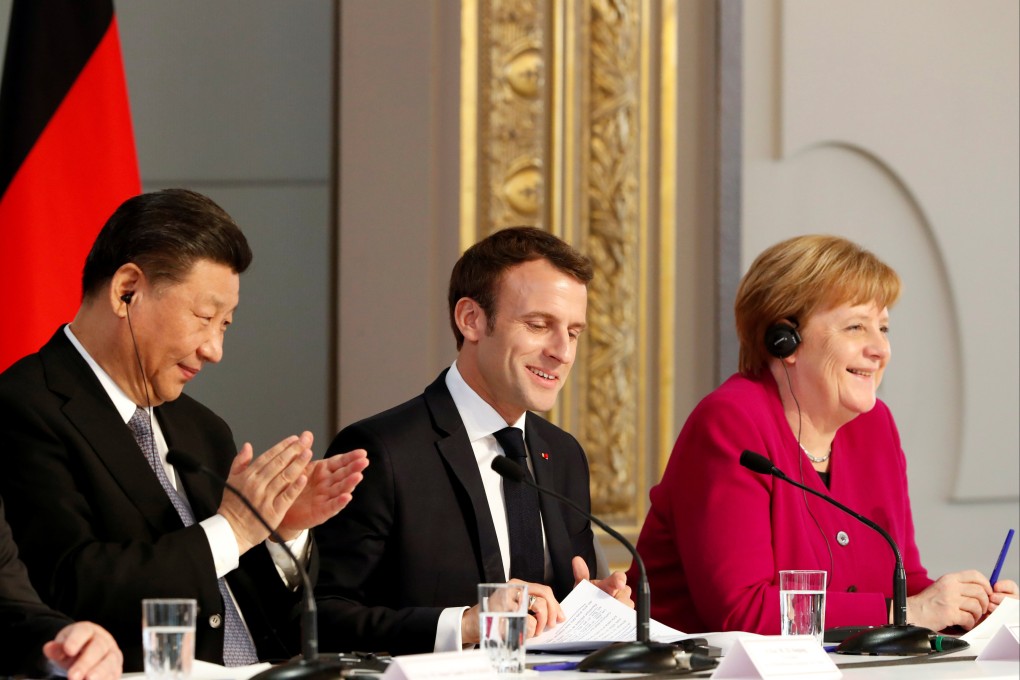Advertisement
Opinion | Will China-EU ties improve after the Xi-Macron-Merkel summit?
- The summit between the leaders of China, France and Germany seems to have been amicable, but China-EU relations are not in the clear given that Merkel is stepping down and Macron’s stance has proved variable
Reading Time:3 minutes
Why you can trust SCMP
2

On Monday, Chinese President Xi Jinping held a video call with his French and German counterparts in an attempt to improve relations with the European Union. Despite all the tensions in Beijing’s relationship with Brussels, the trio agreed to continue to work together on climate change, the pandemic and international trade.
They concurred that potential exists at the moment for the revival of the Iran nuclear deal. They also discussed global vaccine supply, even though China’s vaccines have not been granted authorisation by the EU and the US, with Washington lashing out at China’s vaccine diplomacy.
During a trilateral call in mid-April, Xi Jinping cautioned against using climate change “as an excuse to attack other countries” in what was broadly interpreted as a swipe at the US.
Advertisement
In this week’s call, Xi called on Merkel and Macron to opt for mutual respect rather than “zero-sum games” – a phrase he also used in his address marking the centenary of the Chinese Communist Party. He also encouraged the EU to embody “strategic autonomy”, perhaps a reference to to Europe’s tendency to follow the US’ lead.
Though German Chancellor Angela Merkel and French President Emmanuel Macron called Beijing out on its human rights record, China’s summary of the video call said they supported the rekindling of the suspended EU-China Investment Agreement. This is likely to irk Washington.

The US regards the deal as undermining the transatlantic unity advocated by US President Joe Biden. The deal broke down following, according to one source, severe pressure from Washington on the European Commission to sanction China over Hong Kong and Xinjiang.
Advertisement
Advertisement
Select Voice
Choose your listening speed
Get through articles 2x faster
1.25x
250 WPM
Slow
Average
Fast
1.25x
